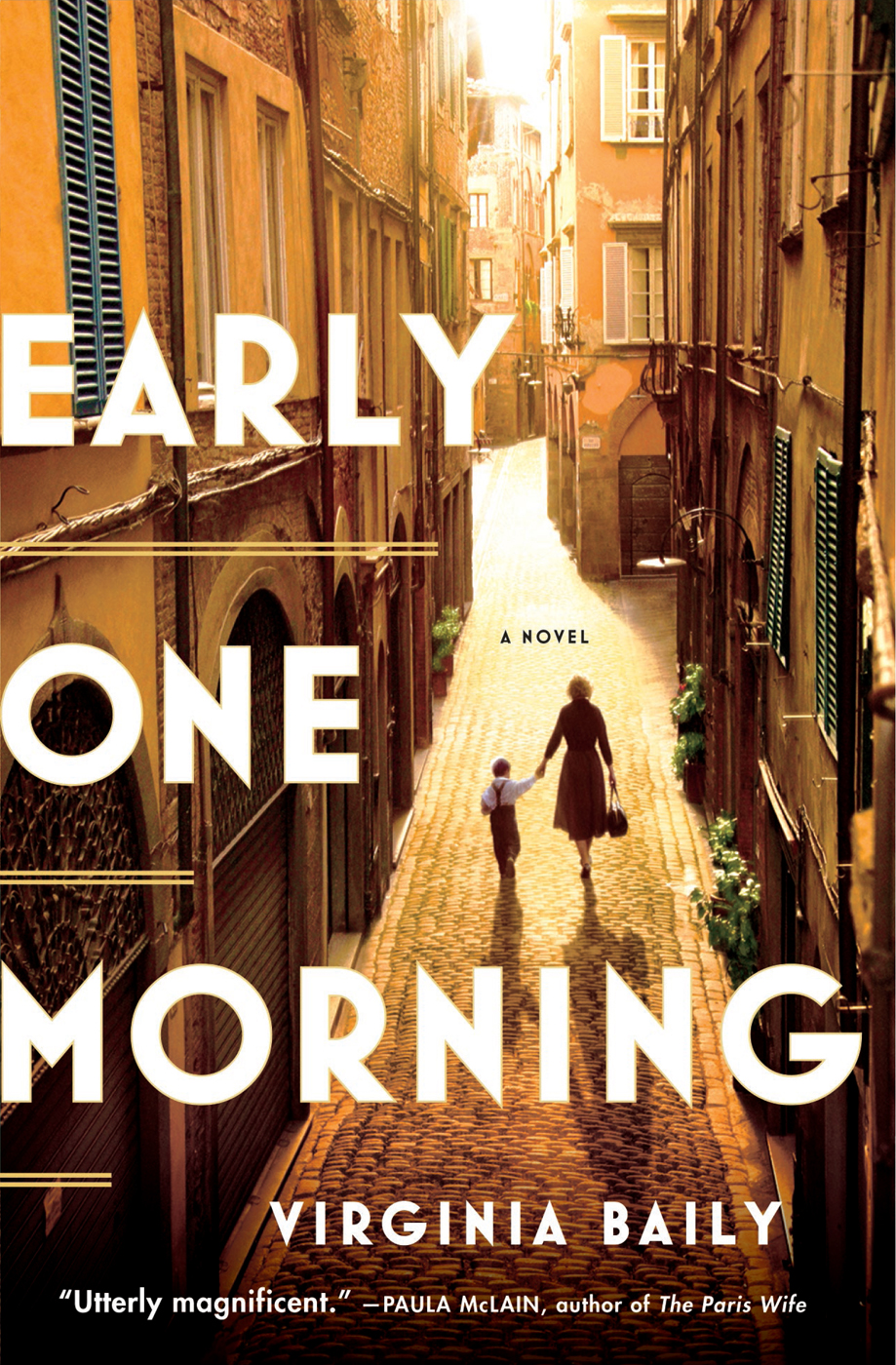
Early One Morning
کتاب های مرتبط
- اطلاعات
- نقد و بررسی
- دیدگاه کاربران
نقد و بررسی

August 10, 2015
As Nazi soldiers march into Rome in 1943, 26-year-old spinster Chiara Ravello prepares to flee to the countryside with her sister, Cecilia, whose frequent seizures have left her with the mind of a child. As Chiara passes the Jewish Quarter, a young mother wordlessly shoves her seven-year-old son into Chiara's arms. She smuggles the boy, named Daniele, to her grandparents' farm, and later raises him to adulthood. Decades later, in 1973, a Welsh teenager named Maria Kelly discovers that Daniele is her father, and her quest for answers leads her to Chiara, who initially chooses to describe herself merely as Daniele's former landlady. Maria's arrival in Rome stirs up heartbreaking memories for Chiara, who has not seen or spoken to Daniele in 10 years. Eventually, she'll have to tell Maria about the true nature of her relationship with Daniele and contend with three decades' worth of shameful memories. Baily's cast of remarkable, memorable charactersâeach with their own set of demonsâdrives a plot that's filled with unexpected twists and manages to populate the well-trodden literary arenas of World War II, the Italian countryside, and hidden family secrets with a fresh perspective and an unexpected resolution. Baily's novel hums with emotional resonance.

July 15, 2015
Vivid and freshly cast family drama that draws on the experience of civilians who came to the aid of Italy's Jews during the Nazi occupation. Though other points of view enter the narrative, it's spry, chain-smoking, never-married Signora Chiara Ravello-reliably sturdy, inwardly doubting-who holds close the cards a reader most cares about. In October 1943, while preparing to evacuate Rome with her mentally impaired sister, Chiara saved a Jewish boy (with his mother's collusion) from almost certain death under the very noses of German police who were rounding up his family for deportation. Flash-forward to the 1950s, when Daniele, the boy she rechristened and raised as her own kin, enters rebellious puberty and stumbles on Chiara's other secret-a terrible one. Before she can form an acceptable explanation, he's gone from her life. As the narrative zigzags between past, near-past, and present, we're introduced to a colorful legion of minor characters, only two of whom have an inkling of Chiara's involvement with anti-fascist partisans, her wrenching wartime sacrifice, or the reason for Daniele's disappearance: Father Antonio, Chiara's old friend and colleague at the pontifical library where she works as a translator; and charismatic, intellectual Simone, her dead father's former mistress. Enter Maria, a British teenager who claims to be Daniele's child and has found Chiara's phone number on a letter. When the girl begs to spend the summer as the signora's lodger in Rome to improve her Italian, 60-something Chiara recognizes a possible path of reprieve from actions weighing on her soul: above all, she wants her life "not to be one where his name is never spoken...and this girl will be the key." At a moment when families around the globe are being upturned by organized aggression and civil war, Baily offers a poignant, not-too-sappy fable about surviving war's cruelties and crushing losses and the near-miraculous feats of bonding humans are sometimes capable of.
COPYRIGHT(2015) Kirkus Reviews, ALL RIGHTS RESERVED.

September 15, 2015
Baily's second novel (after Africa Junction) begins in Nazi-occupied Rome in 1943. Chiara Ravello is preparing to flee to her grandparents' house when she happens across families being forcibly removed from the Jewish ghetto. Without thinking, she rescues a boy from his mother's arms, an action that has three decades' worth of repercussions for Chiara, the boy, Daniele, and eventually his daughter, Maria, who hopes to someday meet him. This is not a sentimental tale of a good deed met with the instant reward of a happily ever after but is instead the story of two women coming to terms with themselves as they search for a man who touched both their lives in different ways. While the novel ends in a rush, readers will be drawn to the vibrant and brave characters. VERDICT This will appeal to fans of Maggie O'Farrell and lovers of historical, intergenerational, or Italian fiction. [See "Editors' Fall Picks," LJ 9/1/15, p. 29.]--Mara Dabrishus, Ursuline Coll. Lib., Pepper Pike, OH
Copyright 2015 Library Journal, LLC Used with permission.

August 1, 2015
This beautifully descriptive first novel moves between 1943 and 1973 to tell a wartime story of survival and connection. In occupied Rome, Chiara Ravello makes an impulsive decision to save the life of Daniele Levi, a young Jewish boy about to be transported to a concentration camp. That decision will haunt her for years as she labors to care for him as well as her sister, an epileptic whose seizures have caused brain damage. Every day is a monumental struggle to find food and shelter while avoiding the scrutiny of the SS. Three decades later, a young girl from Wales telephones Chiara with a plaintive request; she has learned that she is the daughter of Daniele and wishes to meet him. So starts Chiara's attempts to locate the young man she has been estranged from for years. Not only does Baily capture the bursting color and sumptuous food of Rome but she also details the swinging scene of 1970s Wales. Most impressive is the way she strips her story of all sentimentality; Chiara's rocky relationship with the difficult Daniele is rendered with heartbreaking clarity.(Reprinted with permission of Booklist, copyright 2015, American Library Association.)

























دیدگاه کاربران